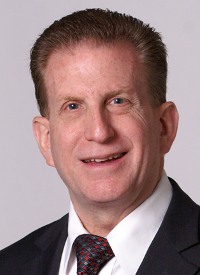
Ken Kaplan,
LP New Jersey
Candidate for Governor
Ken Kaplan, the Libertarian Party candidate for governor in New Jersey, aims to make New Jersey the tenth state with no state income tax.
If Kaplan wins, he promises not to cherry-pick through the Constitution, but to enforce the Bill of Rights in its entirety, as meant by the Founding Fathers.
“It sounds like Bizarro World: an American citizen has to seek asylum in Russia for upholding our Fourth Amendment rights against unreasonable searches and seizures,” Kaplan said, commenting on the plight of Edward Snowden, a former National Security Agency (NSA) contractor who blew the whistle on massive U.S. government surveillance programs targeting Americans.
Also vying for the governor’s seat in the Nov. 5 election are incumbent Republican Gov. Chris Christie, Democratic state Sen. Barbara Buono, and five other third-party and independent candidates.
To stand out, Kaplan is putting forward a simple but powerful agenda: more freedom and less taxes.
“I regard the first 10 amendments to the Constitution as a package deal, and regard an attack on any one of them as an attack on all of them,” he said. “I regard the right to keep and bear arms guaranteed in the Second Amendment as no less important than the right to freedom of speech and religion guaranteed in the First Amendment.”
The Democratic-leaning state already has some of the strictest gun laws in the nation. And last spring, Gov. Christie proposed to toughen them even further by banning future sales of the Barrett .50 caliber long-range rifle. But the governor reversed himself in August and vetoed the legislature-approved ban, saying it will “serve only to confuse law-abiding gun owners.”
“Those who use guns in the commission of crimes should be punished severely, but the state should not prevent its law-abiding citizens from exercising their constitutional rights,” Kaplan said.
In Kaplan’s view, New Jersey residents are overburdened with taxes that make the Garden State less attractive as a place of residence and business. And voters should not expect any change in this area if either of the two major-party candidates prevails in November.
“New Jersey’s broad-based taxes are out of control. We are drowning in a sea of property taxes, income taxes, and sales taxes,” he said, recalling that when he was a child, New Jersey did not have either an income or sales tax.
He attributes the ever-increasing tax burden to “the tremendous growth of the state government” that needs to be cut drastically.
Kaplan believes the state needs to move away from broad-based taxes to user fees that would be paid only for services that are actually used.
That way, he argued, some services currently performed by the state government would be taken over by the private sector, which would make government smaller and enable New Jersey to cut spending.
“It will also give individuals the power to save money by not paying for services they don’t want or don’t need,” he explained. “The rate of the income tax can be stepped down in tandem with each reduction in the size of government until that tax vanishes. Then we can get to work reducing the sales tax.”
Kaplan said that the New Jersey government contains many layers of bureaucracy, from the bloated state government and regulatory agencies to county and municipal governments, as well as relatively autonomous groups like public school boards. These overlapping levels of authority, he says, lead to tremendous redundancy and waste.
“I would eliminate county government entirely,” Kaplan noted. “Some of what the counties do would revert to the state, and some of what the counties do would be done through ad hoc regionalization.”
Cities that have adjacent interests may find it worthwhile to combine services, he pointed out.
A strong supporter of gay marriage, Kaplan drew a sharp distinction between his position on the issue and that of Gov. Christie, who in February 2012 vetoed a bill that would have legalized same sex marriage in New Jersey. Kaplan argued that under his governorship, things would be different.
“All New Jersey citizens should enjoy the same rights,” he insisted. “Such a law would not require any religious denomination to recognize or perform such marriages, but it would allow them to do so. Civil marriages would be available to all as a matter of right.”
Facing criticism on the campaign trail, Gov. Christie recently moved to relax the state medical marijuana law, making it easier for chronically ill children to use it as part of their treatment. But Christie would still require a pediatrician and a psychiatrist to approve it, and he insisted that edible forms of marijuana be dispensed only to minors, not to patients of all ages.
By contrast, Kaplan proposes unequivocal marijuana legalization.
“This is an issue of personal freedom,” Kaplan said. “Whether or not marijuana is good for anyone is irrelevant. Every adult should have the right to make his or her own choices as to what to ingest — be it alcohol, marijuana, nicotine, or cherry pie. Let our drug laws continue to protect children, but let adults have freedom of choice.”
With the major media still focused on the Republican and Democratic candidates, Kaplan does not shy away from campaigning door to door, holding rallies, and pressing the flesh. The Internet and social media platforms offer additional opportunities.
He does not expect to be invited to the televised gubernatorial debates because, as in many other states, the New Jersey electoral system is stacked against small-party candidates. Under state rules, a candidate must raise and spend at least $380,000 to qualify for public funding and, subsequently, an invitation to the debates.
“I have not raised that kind of money, nor do I expect to,” Kaplan pointed out.
But he counts on the disillusionment of many New Jersey residents with the choices offered by the two major parties.
“A vote for Ken Kaplan is a statement that you will no longer choose between the lesser of two evils,” he said.

